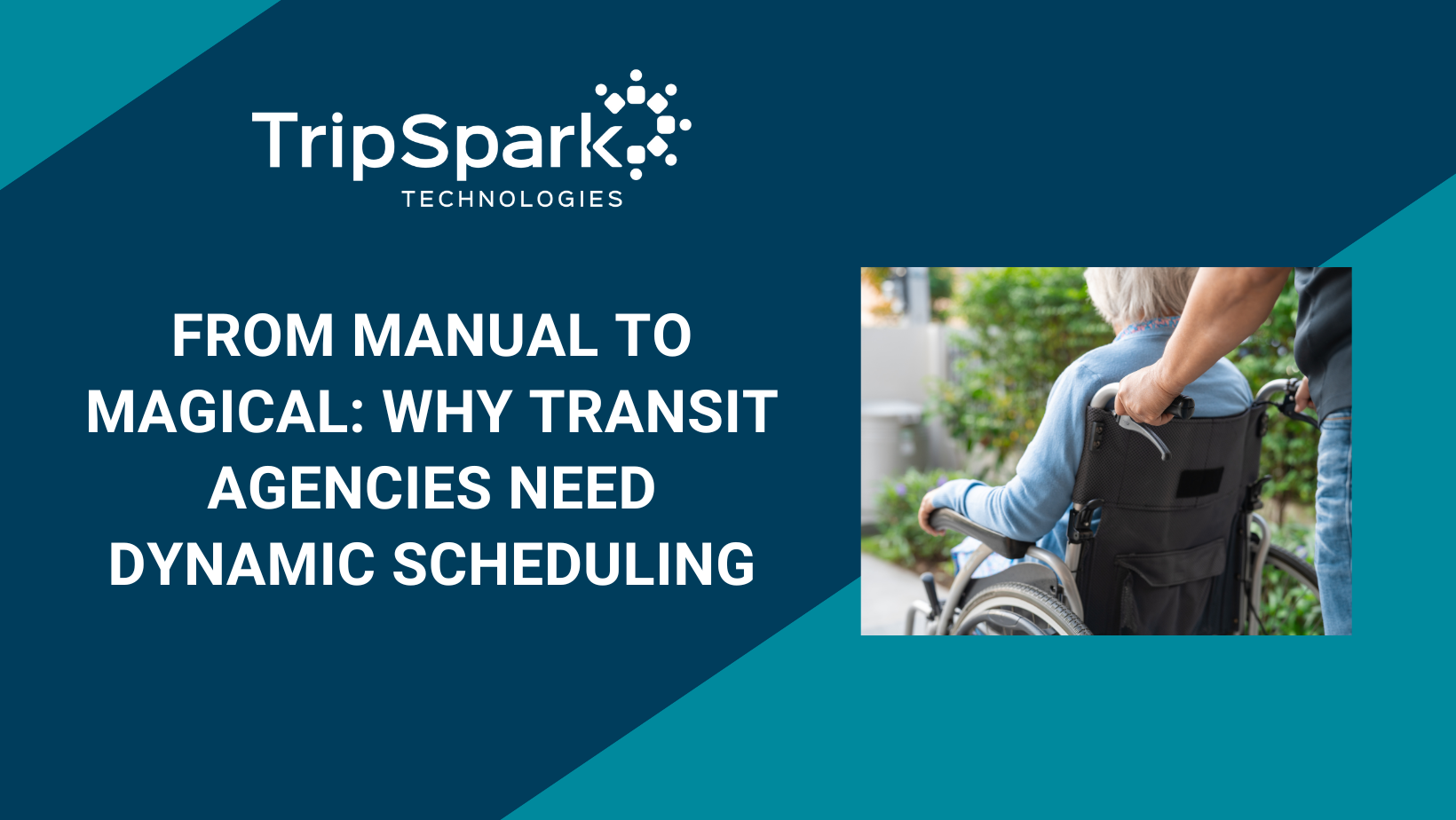From Manual to Magical: Why Transit Agencies Need Dynamic Scheduling

Transit agencies today face a growing challenge: how to deliver reliable, efficient service in an environment that’s constantly changing. Whether it’s fluctuating rider demand, traffic delays, or last-minute cancellations, traditional scheduling methods often fall short. That’s where Dynamic Scheduling comes in not just as a technical upgrade, but as a strategic transformation.
What is Dynamic Scheduling?
Dynamic scheduling is the process of continuously optimizing transit trips in real time. Unlike batch scheduling, which locks in routes and manifests ahead of time, dynamic systems adapt throughout the day. They respond to new bookings, cancellations, and operational changes automatically and intelligently.
This approach allows agencies to:
- Maximize fleet utilization
- Reduce manual dispatcher workload
- Improve on-time performance
Why Manual Scheduling is No Longer Enough
Manual scheduling often requires hours of dispatcher intervention, especially when trip requests change or vehicles run behind schedule. These reactive adjustments can lead to:
- Inefficient routing
- Increased fuel and labor costs
- Missed pickups or late arrivals
- Frustrated riders and staff
Dynamic scheduling eliminates these pain points by automating trip placement and adjustment. It ensures that vehicles are routed efficiently, riders receive timely updates, and staff can focus on higher-value tasks.
The Benefits of Going Dynamic
Agencies that adopt dynamic scheduling often see:
- Fewer missed trips due to real-time reallocation
- Lower operational costs through smarter routing
- Improved rider experience with accurate ETAs and flexible booking options
- Scalable operations that can handle growth without increasing overhead
Empowering Riders and Staff
Dynamic scheduling isn’t just about automation, it’s about empowerment. Riders benefit from:
- Same-day booking options
- Real-time notifications
- Mobile self-service tools
Meanwhile, staff gain:
- Greater visibility into daily operations
- Tools to intervene only when necessary
- Time to focus on strategic planning and customer service
Final Thoughts
Dynamic scheduling is more than a technology, it’s a mindset shift. It enables transit agencies to move from reactive to proactive, from manual to magical. By embracing smarter scheduling tools, agencies can deliver better service, reduce costs, and build trust with their communities.
Ready to let dynamic scheduling take the wheel? Talk to TripSpark and let’s have a conversation about optimizing daily trips.
